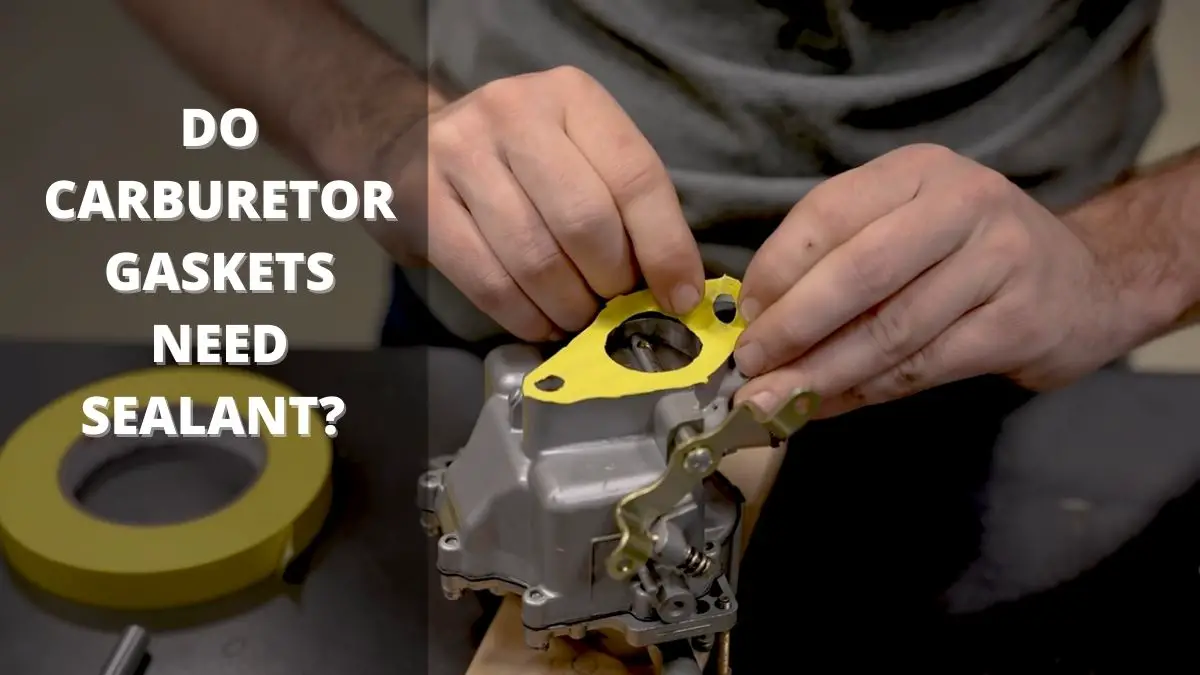Carburetor gaskets are a crucial part of your engine’s functioning. They help to keep the air and fuel mixture sealed inside the carburetor, preventing leaks and making the engine run smoothly.
Over time, these gaskets can become worn or damaged, causing them to leak air or fuel. If this happens, you may experience decreased engine performance and even difficulty starting your car.
Carburetor gaskets are one of the most important components of an engine. They prevent air from entering and escaping the carburetor, which can cause problems with performance and fuel economy. Over time, carburetor gaskets can become brittle and crack, leading to decreased fuel efficiency and even possible engine failure.
So, the answer to whether carburetor gaskets need sealant is mo. Carburetor gaskets do not need sealant.
In fact, if you use sealant on these gaskets, it can actually cause problems. The sealant can cause the gasket to swell and distort, which will lead to a leak. Additionally, the sealant can also make it difficult to remove the gasket when it needs to be replaced.
Table of Contents
Do gaskets require sealant?
Gaskets are usually made of metal or rubber, and they seal two surfaces together to prevent leakage. In some cases, a sealant is used on the gasket to create a better seal and prevent leaks.
However, most gaskets do not require a sealant for proper sealing. The type of gasket, the surface finish of the mating surfaces, and the amount of torque applied during assembly all play a role in whether or not a sealant is necessary.
If you are unsure whether or not to use a sealant on your gasket, consult the manufacturer’s instructions or contact a qualified technician.
What is the best gasket material for a carburetor?
There are a variety of different gasket materials that can be used for a carburetor. Some of the most common materials include nitrile, silicone, and neoprene. Each material has its own benefits and drawbacks.
The best carburetor gasket is Nitrile. This is a synthetic rubber that is often used in automotive applications. It is resistant to oil, gas, and other chemicals, making it a good choice for carburetors. Nitrile gaskets are also durable and can withstand high temperatures. However, they can be brittle and may not seal well if they are damaged.
Silicone is another common gasket material. It is flexible and can withstand high temperatures. However, silicone gaskets are not as resistant to oil and other chemicals as nitrile gaskets. They also tend to be more expensive than other materials.
Can you use cork gasket on a carburetor?
Cork gasket material can be used on a carburetor, and in fact, it can provide some benefits.
One of the benefits of using cork gasket material on a carburetor is that it is an effective sealant. It can help to keep fuel and air from leaking out of the engine. Cork gasket material is also resistant to heat and compression, which makes it a good choice for use in high-pressure applications like carburetors.
Cork gasket is also a good insulator, so it will help to keep the heat in and improve the performance of the carburetor.
Can I make my own gaskets?
The answer to this question is yes, you can make your own gaskets. However, there are some things to consider before you get started.
The first thing you need to do is determine the type of gasket you need. There are many different types of gaskets, so it’s important to know the specific type you need.
Once you’ve determined the type of gasket, you need to find the right material to make it from. There are many different materials that can be used for gaskets, so it’s important to select the right one for your application.
Once you have selected the right material, you can start making your gasket. The process will vary depending on the material you choose, but most methods involve cutting out a shape and then sealing the edges.
Do I need to lubricate carburetor gaskets?
No, you do not need to lubricate carburetor gaskets.
In fact, doing so may actually cause more problems. Carburetor gaskets rely on a tight seal in order to function properly. If you add lubricant, it will likely seep into the engine and create problems. Additionally, the lubricant may attract dirt and other particles that can cause further damage.
Should I put grease on a gasket?
yes, you can put grease on a gasket. It will help to keep the gasket from drying out and cracking, which can cause leaks. However, it’s important to use the right kind of grease – one that is specifically made for automotive applications.
You should also make sure to apply it in a thin layer so that it doesn’t build up and create a blockage.
Conclusion
Carburetor gaskets do not need sealant. While it is not necessary, some choose to use sealant as an extra layer of protection.
If you are using sealant, make sure to follow the manufacturer’s instructions for application.


